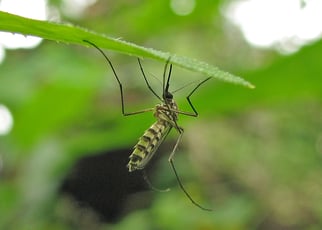A University of California Riverside assistant professor of entomology has received a $2.3 million grant from the National Institutes of Health to develop new ways to combat mosquitoes, one of the world’s most lethal disease carriers.
Read MoreTags: University of California Riverside, malaria, Funding, Riverside, UC Riverside, Biotech Showcase, Laboratory Equipment & Services, Research And Education, Translational Biomedical Research, Zika virus, Health Sciences, nih research funding, Epidemic diseases, university research funding
The National Institute of Allergy & Infectious Diseases (NIAID) awarded University of California, Irvine $9.6 million to study the impact of environmental changes on malaria in sub-Saharan Africa. This research funding establishes UCI as one of the International Centers of Excellence for Malaria Research (ICEMR).
Read MoreTags: University of California Irvine, malaria, Research Funding, Laboratory Equipment Supplier, Lab Product Sales, NIH funding, UCI, UC Irvine, BioResearch Product Faire, 2017 research funding
Malaria and toxoplasmosis are caused by different, yet closely related, apicomplexa parasites. Efforts to eliminate these diseases have met with only partial success. Now the National Institute of Health (NIH) has awarded the University of South Florida (USF) a $2.5 million, five year grant to study a new approach to fighting these diseases by stopping their ability to replicate.
Read MoreTags: BioResearch Trade Show, malaria, Research Funding, parasite, University of South Florida, USF, Bioresearch Grant

(Image courtesy of Wikimedia Commons)
Dr. Abraham Badu-Tawiah, assistant professor at Ohio State University, is out to revolutionize the world of diagnostic testing. By making paper strips that can detect malaria and well as certain types of cancers, he hopes to make testing more practical and affordable. People would be able to simply apply a drop of blood to the paper test strip at home, much like diabetics do when testing their blood sugar, and then mail it to the laboratory. This new method would make medical diagnostics much more accessible for those who can't easily get to a lab for testing.
Read MoreTags: Midwest, Ohio State University, Ohio, Cancer, malaria, biotech vendor show, Columbus, Dr. Abraham Badu-Tawiah
 According to the Center for Disease Control, an estimated 198 million cases of malaria occurred worldwide and 500,000 people died, mostly children in the African Region.
According to the Center for Disease Control, an estimated 198 million cases of malaria occurred worldwide and 500,000 people died, mostly children in the African Region.
Tags: Duke University, North Carolina, infectious diseases, 2015, malaria, BioResearch Product Faire Event, Durham, NC, Duke, NIH funding, Duke Medical Plaza, NIH grants
Malaria is a devastating global health problem in many parts of the world, having caused nearly 215 million infections internationally and 655,000 deaths per year. Most people know malaria is transmitted by the bite of an infective mosquito: the female Anopheles mosquito in particular. There are other less common methods of transmission as well, including blood transfusion, organ transplantation, needle sharing and when a mother gives birth to a child.
Tags: 2014, Oregon State University, malaria, BioResearch Product Faire Event, OR, Corvallis, OhStu, drug test strips, Oregeon

